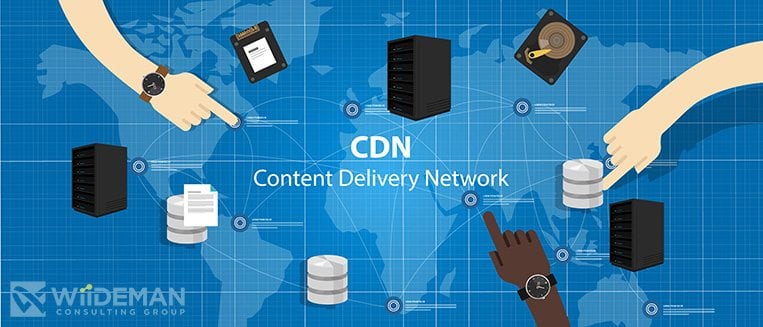What is a CDN & Why You Should Use One

When it comes to websites, it is just as important to have a great design, quality content, as well as to make sure that your website works fast. Even most of your loyal visitors will start avoiding your website if they realize that it takes too long for some page to load. As you might already be aware, there are a lot of things that can affect a website’s speed.
One of the most essential speed factors is the location of the server on which that website operates. It’s quite simple how a server affects the speed of a website – the further that server is located, the longer it will take for it to process some requests. Luckily, this is where a CDN (content delivery network) can be of great help.
What is a CDN?
Basically, a CDN is a large system of servers which are distributed all around the globe. There are a lot of things that these servers can do, including housing cached versions of websites, web apps, files, and pretty much any other type of content someone would need.
All of these data centers of CDNs have been placed in carefully planned strategic locations all around the world in order to allow their users to deliver data efficiently to their customers and allow them to get the information they’ve requested more quickly. When a request is made to a website that has implemented a CDN, it is handled by the closest server, meaning that the latency of received information is much lower.
Should You Use a CDN?
The majority of website operators will tell you that you need a CDN, as there are almost 12 million websites out there that currently use some CDN services in order to improve their performance. Additionally, over half of the 10, 000 best ranked websites use CDN in 2016.
User experience has become quite important in order to stay competitive in the online world and this is why any website that looks to give a pleasant experience to their visitors should employ a CDN system. All of the benefits of CDN are universal, and it doesn’t matter if a website is large or small, a CDN can help improve results.
Benefits of Using a CDN
A content delivery network can significantly decrease the loading time for users. It has been proven that CDNs can improve a page’s load time by almost 40 %.
Given the fact that CDNs are cached versions of websites, they can also be used as backups in case a website experiences downtime. This allows you to take your time and get your website up and running without your visitors suffering.
A website that has an implemented CDN can deal better with traffic surges, given the fact that the servers won’t have to handle so many requests and that their infrastructure is better designed for any heavy loads.
The benefits are quite obvious, however this doesn’t mean that you should implement the first CDN you come across. There are a lot of providers out there and not all of them are good. This means that you should do a bit more research in order to learn how to differentiate good providers from bad ones.
Although CDNs might sound complicated, they are actually not and most websites that are built properly can implement them in no time, with the right service of course. Basically, all you need to do is to tell your provider which files need to be mirrored and then setup your website to direct requests meant for those files to your CDN provider, so that they are handled by the appropriate server.
